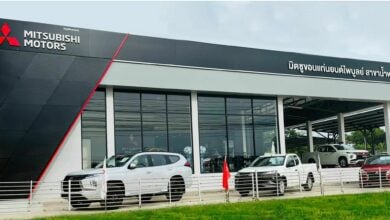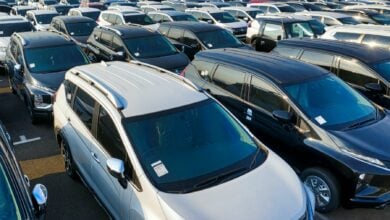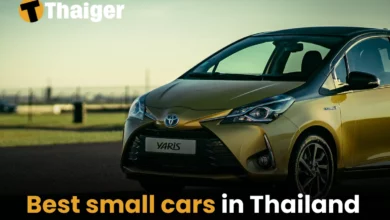Thailand’s car scene: Electric vs Hybrid vehicles analyzed
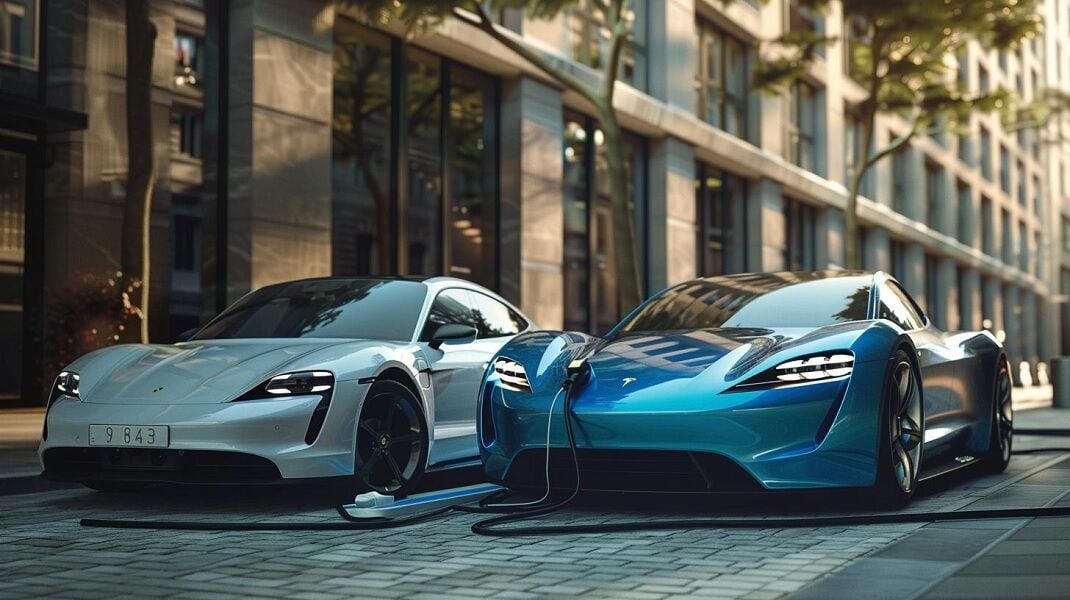
Folks living in Thailand and thinking about switching to greener ways of getting around often find themselves weighing up electric vehicles (EVs) against hybrid cars. Both are friendlier choices for the planet compared to old-school petrol or diesel engines, but they come with their own pros and cons. Getting a good grasp on how they differ is super important for picking the one that not only fits your driving needs but also helps you do your bit for the environment.
Have you heard about electric vehicles like the awesome BYD ATTO 3? They’re super popular in Thailand right now, thanks to their amazing range and being super kind to the planet with zero emissions. If you’re not quite ready for fully electric, hybrid vehicles are a cool option too. They mix electric power with traditional engines, giving you the best of both worlds – especially if you’re worried about how long the battery will last or where to charge up. As Thailand’s car scene grows, picking between an electric and a hybrid vehicle is becoming a pretty hot topic!
We are diving into this fun comparison to see how each option stacks up when it comes to saving you money, making life easier, and doing good for our planet. Whether you’re all about that electric vibe with EVs or love the trusty efficiency of hybrids, understanding how they fit into your daily journeys and help keep our environment green is super important. We are here to explore all these vehicle types’ cool features and figure out their role in driving Thailand’s automotive scene forward. Let’s get started on this exciting adventure together!
Electric cars in Thailand
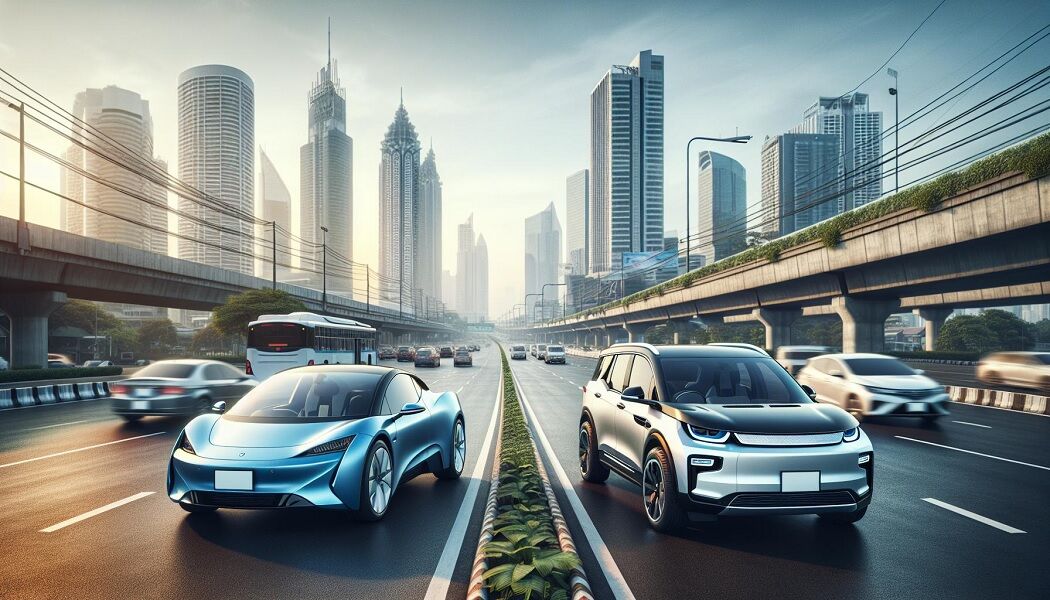
Overview of electric cars
In Thailand, the debate between electric vs hybrid cars is gaining momentum. Electric cars, known for their reliance on electrical energy for propulsion, stand out. Unlike hybrids, they don’t use fuel combustion, making them a pure form of green transportation. As of 31 December 2021, Thailand registered 11,382 battery-powered electric vehicles. This includes cars, motorcycles, trucks, buses, and tuk-tuks. The electric vehicle (EV) market in Thailand saw rapid growth by 2023, signalling a shift in consumer preference towards cleaner, more sustainable modes of transportation.
Benefits of electric cars
Choosing an electric vehicle (EV) in Thailand comes with some pretty cool benefits. First off, EVs are amazing because they run without any nasty emissions. Unlike the usual cars, electric ones keep it clean and don’t add to air pollution. This is super important in places like Bangkok where lots of people live close together and everyone wants to breathe easier. Plus, driving an EV can save you some cash! It costs less to travel a kilometre in an electric car compared to one that guzzles petrol or diesel, thanks mainly to electricity being cheaper. Also, since these cars have fewer moving bits inside them, you won’t be spending as much on keeping them running smoothly.
Furthermore, electric vehicles often lead in modern design and technology, incorporating advanced safety and connectivity features.
Choosing an electric vehicle isn’t just great for the planet; it’s a step into a future filled with awesome tech! Thanks to the Thai government putting money into EV infrastructure, and everyone around the world leaning towards greener living, picking an electric car over the usual hybrid model is a smart move. It’s perfect for anyone looking to do their bit for the environment while enjoying the latest in technology.
Hybrid cars in Thailand
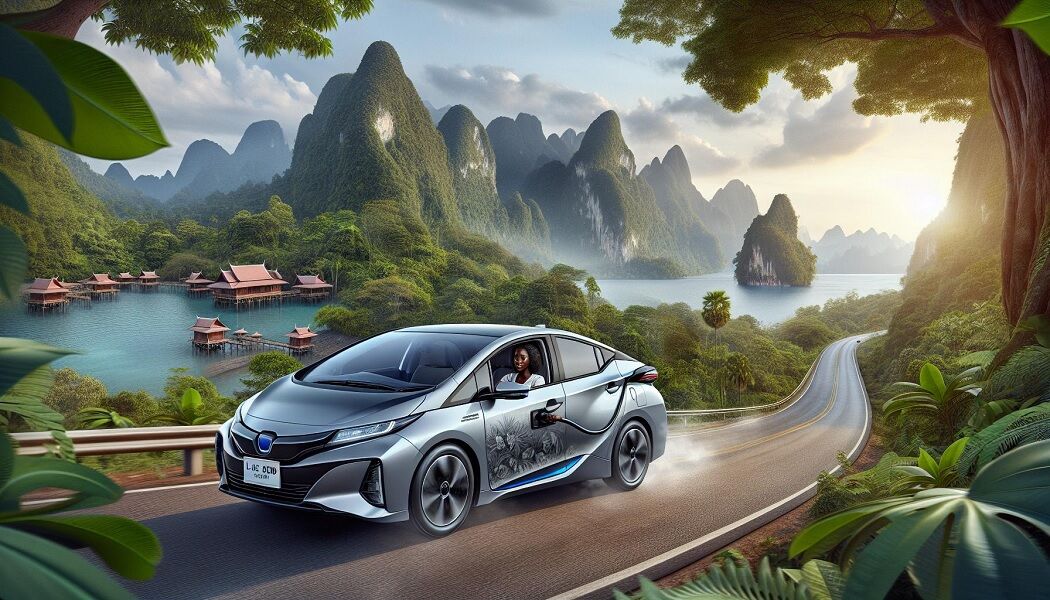
Overview of hybrid cars
When considering electric vs hybrid cars in Thailand, it’s essential to understand what sets hybrid vehicles apart. Hybrid cars combine a traditional internal combustion engine with an electric motor. This dual-power approach aims to boost fuel efficiency while reducing emissions compared to conventional petrol or diesel cars. In Thailand’s context, hybrids serve as a practical middle ground for those looking to make more eco-friendly choices without fully committing to electric vehicle (EV) technology. The availability and variety of hybrid cars have expanded, offering options from compact city cars to spacious SUVs tailored to diverse driving needs.
Benefits of hybrid cars
The Benefits of Hybrid Cars are prominent, especially when weighing electric vs hybrid cars. Firstly, hybrids are more accessible in the Thai market due to lower initial costs compared to their fully electric counterparts. This affordability stems from lesser dependence on imported technology and batteries, which significantly drive up prices for EVs. Second, hybrid vehicles offer enhanced fuel efficiency. By combining petrol engines with electric power, hybrids can cover longer distances on a single tank of fuel, making them ideal for Thailand’s vast and varied landscapes. Furthermore, hybrids in Thailand benefit from government incentives aiming to promote cleaner transportation options, albeit to a lesser extent than electric vehicles. Lastly, given the current infrastructure in Thailand, hybrids present a practical solution for reducing carbon footprints without the range anxiety and charging infrastructure concerns associated with fully electric cars.
Hybrid cars strike a balance, integrating beneficial features from both worlds. They provide a stepping stone towards a more sustainable future in Thailand’s automotive scene, catering to drivers not yet ready to transition fully to electric vehicles but still aiming to mitigate their environmental impact.
Comparison between electric and hybrid cars
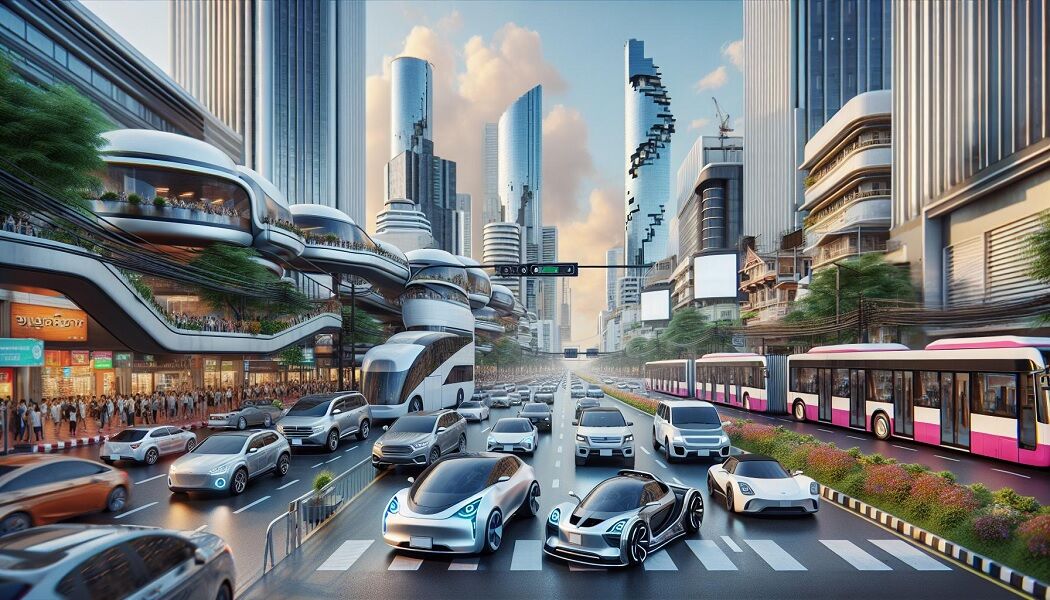
When diving into the discussion on electric vs hybrid cars in Thailand, it’s essential to understand how they stack up against each other in key areas. Below, we explore their environmental impact, cost efficiency, and the overall driving experience they offer.
Environmental impact
Hey there! Did you know electric cars are pretty awesome because they don’t spit out any nasty stuff from their tailpipes? This is super cool for crowded places like Bangkok, where cleaner air is always a big win. But, here’s the twist – most of Thailand still gets its power from sources that aren’t exactly eco-friendly. So, we’re not quite at superhero levels of greenness with electric vehicles (EVs) just yet. The good news? Renewable energy is getting better and better, which means EVs will keep getting cleaner.
Now, let’s chat about hybrid cars. These clever creations mix a regular engine with an electric motor, cutting down on pollution more than the old-school cars do. They’re kind of like a stepping stone to the future, helping us get by while we wait for everything to be ready for full-on electric cars. Hybrids are paving the way for a greener ride in Thailand’s journey towards sustainability. How cool is that
Cost efficiency
Cost efficiency in electric vs hybrid cars varies depending on factors like purchase price, maintenance, and running costs. Electric cars usually come with higher upfront costs due to expensive battery technology. However, they tend to be cheaper to operate in the long run due to lower energy costs and fewer moving parts requiring maintenance.
Hybrids, being less technologically complex than fully electric vehicles, often have a lower purchase price. They offer savings on fuel consumption and are less expensive to maintain than purely internal combustion engine vehicles. The overall cost efficiency for hybrids in Thailand benefits from government incentives aimed at promoting cleaner vehicles.
Performance and driving experience
Hey there! If you’re curious about electric vehicles (EVs), let me tell you, they’re pretty cool with their instant zip when you step on the accelerator. It’s like they leap forward without any delay, making them a blast to drive compared to traditional cars. Plus, they’re super quiet, which means your drives are going to be way more relaxing and peaceful – imagine cruising around without that constant engine hum. And if you’ve seen the Tesla Model Y zooming around Thailand, then you know EVs can really bring the thrill.
Now, if we chat about hybrids for a sec, they’re like the best of both worlds. They smartly switch between using an electric motor and a regular engine to give you a sweet spot of power and efficiency. So while they might not jump forward as quickly as EVs do when you hit the gas, hybrids make up for it by being super savvy with fuel and keeping emissions low. They’re perfect if you’re just starting to dip your toes into greener cars but still want that familiar drive.
Ultimately, the choice between petrol, diesel, or electric cars depends on your driving habits, budget, and environmental priorities. Electric cars offer significant savings on fuel and maintenance in the long run, and they’re the best option for reducing carbon footprint. However, initial costs can be higher. Diesel cars are more fuel-efficient for long-distance drivers, potentially saving money over time. Petrol cars are usually cheaper upfront and suit those with lower annual mileage. Therefore, to truly save more, consider your specific needs when choosing between petrol, diesel, or electric cars.




























